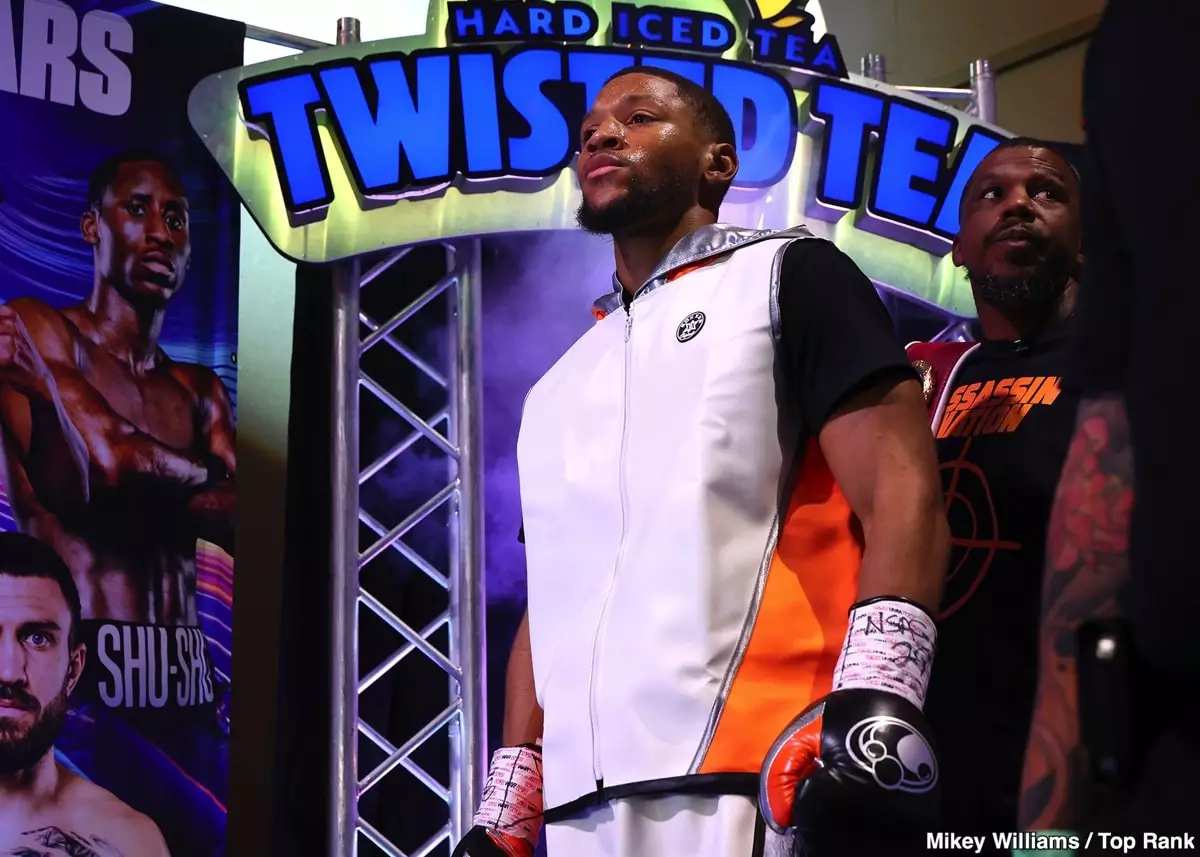The world of professional boxing is not just an arena for physical prowess; it’s also a complex marketplace where money, ego, and ambition collide. The proposed unification bout between IBF champion Jaron “Boots” Ennis and WBO titleholder Brian Norman Jr. is a poignant example of how financial exigencies can stymie a much-anticipated matchup. Derek “Bozy” Ennis, the trainer of Boots, unequivocally pointed fingers at Norman Jr., alleging that the latter’s financial demands were the linchpin in the negotiations’ collapse. Initially, a sum of $1.7 million was offered by Eddie Hearn, but the Norman camp believed that figure failed to account for their expenses, including payments to longtime promoter Bob Arum. They sought an upward adjustment, setting their sights on a $2.2 million paycheck. In the high-stakes world of boxing, where even a single fight can alter a fighter’s career trajectory, such negotiations can quickly spiral into a battleground of their own.
While Bozy Ennis has publicly criticized Norman Jr.’s financial demands, one has to wonder about the broader implications of these negotiations. Isn’t part of the promoter’s responsibility to ensure that both fighters feel equitably compensated? This speculation leads to the consideration of another layer: the potential fear by Team Ennis of facing a formidable challenger like Norman Jr., who is often compared to the likes of Vergil Ortiz Jr. in terms of his tenacity and skill set.
Negotiational Philosophy: The Standoff over Location
The choice of venue in this blockbuster fight also casts a long shadow over the proceedings. While Norman Jr. demonstrated a willingness to trek to neutral grounds in Las Vegas for the fight, the Ennis contingent remained steadfast in their desire to host the clash in Philadelphia. One can’t ignore that in boxing, hometown advantages play a pivotal role. Fighting in front of a supportive crowd can bolster a fighter’s performance and psyche, possibly influencing the judges’ opinions during close bouts.
Yet, given the stakes involved, the notion of sticking to Philadelphia at the exclusion of a Las Vegas engagement raises eyebrows. Dismissive of a lucrative neutral venue, the Ennis team’s rigidity appeared to clash with the realities of negotiation—successful negotiations often require some compromise. The refusal to budge on venue preference could indicate a deeper emotional or strategic apprehension about the fight itself. Was Team Ennis hesitant to face an emerging talent with a growing fanbase and a substantial skill set? Such dynamics often play a silent role in negotiations that are interpreted as straightforward financial disagreements.
Fan Reactions: Divided Opinions and Theories
Boxing aficionados and casual fans alike have weighed in on this negotiation debacle, often creating a narrative rife with speculation. Some proponents of Ennis suggest that he and his team sidestepped a challenging fight against an unpredictable adversary. After all, Norman Jr. brings a potent combination of youth and hunger that might unsettle even the most seasoned veterans. Such fear is palpable in the boxing community; avoiding a dangerous opponent is sometimes seen as a tactical retreat rather than a prudent strategic decision.
Others argue that it’s not just the fighters but their promoters who play a targeted role in shaping the landscape of these fights. With heavyweight promotions involved, fans speculate whether Eddie Hearn opted against increasing his offer based on business pragmatism rather than any genuine assessment of Ennis’ ability to defeat Norman Jr. The friction between potential earnings and the perceived risk of defeat raises an unspoken question: how often do promotional decisions overshadow the spirit of competition in boxing?
Looking Back: Did Team Ennis Make a Mistake?
As we critically assess the outcomes of this failed negotiation, one can’t overlook the possibility that Boots Ennis and his team may have miscalculated in their refusal to meet halfway on financial demands. Ennis ended up boxing against his IBF mandatory opponent, Karen Chukhadzhian, and the resulting performance left a lot to be desired. While he avoided Norman Jr. and any associated risks, he inadvertently squandered an opportunity to unify two titles and establish his legacy in the Welterweight division.
With a lackluster showing against Chukhadzhian—many fans criticized the decision that tilted in Ennis’ favor—it’s fair to question whether the refusal to compromise on price and venue resulted in a damaging detour for the young fighter’s career. In the cutthroat arena of boxing, such missed opportunities can reverberate long after the final bell rings, making one wonder if avoiding confrontation was the wise choice after all. Perhaps in another universe, a $500,000 increase could have sparked a fight that fans would be clamoring for today.

